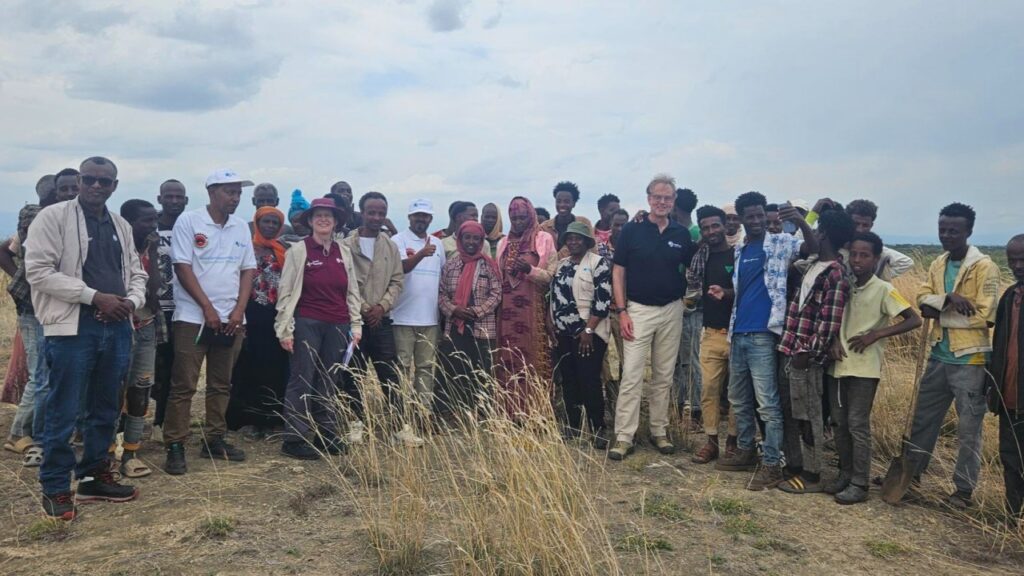
World Lake Day: Connecting Communities and Leaders for Lake Resilience
On 27 August 2025, the world marks the first-ever World Lake Day. Few places capture both the urgency and the promise of this day better than Ethiopia’s Rift Valley lakes.
This June, Wetlands International’s Global CEO Dr. Coenraad Krijger travelled to Ethiopia together with Dr. Julie Mulonga, Regional Director for Eastern Africa and Kate Pearson, Head of Resource Development. Hosted by Dr. Simeneh Shiferaw and the dedicated Wetlands International Ethiopia team, the mission highlighted one truth: lakes connect people, policy, and planet in powerful ways.
From Lakeshores to Communities
The visit began inland at the Ziway–Shalla Sub-Basin, a landscape where the stakes could not be higher. Once abundant, these lakes Ziway, Abijata, Shalla and Langano now bear the scars of overuse and mismanagement. Overgrazing, deforestation, unregulated water abstraction and settlement inside protected areas have pushed this ecosystem to the brink.
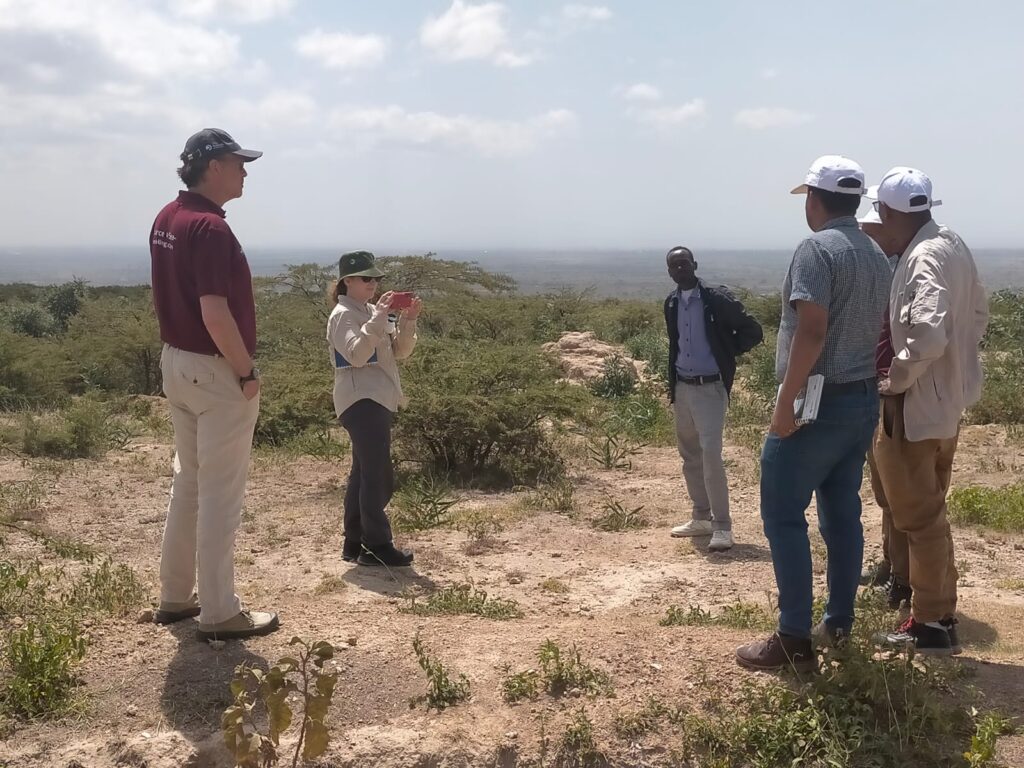
Yet on the ground, change is stirring.
In the Ziway–Shalla Sub-Basin, Wetlands International has supported more than 35 households to adopt worm-based composting, an affordable and locally driven solution that enriches soil, safeguards water systems and generates extra income.
Once barren land is also coming back to life. With the help of community champions and ecological techniques such as water retention structures and soil regeneration, more than 2,000 hectares have been restored. Birds and wildlife are returning, and local leaders now speak proudly of landscapes reborn.
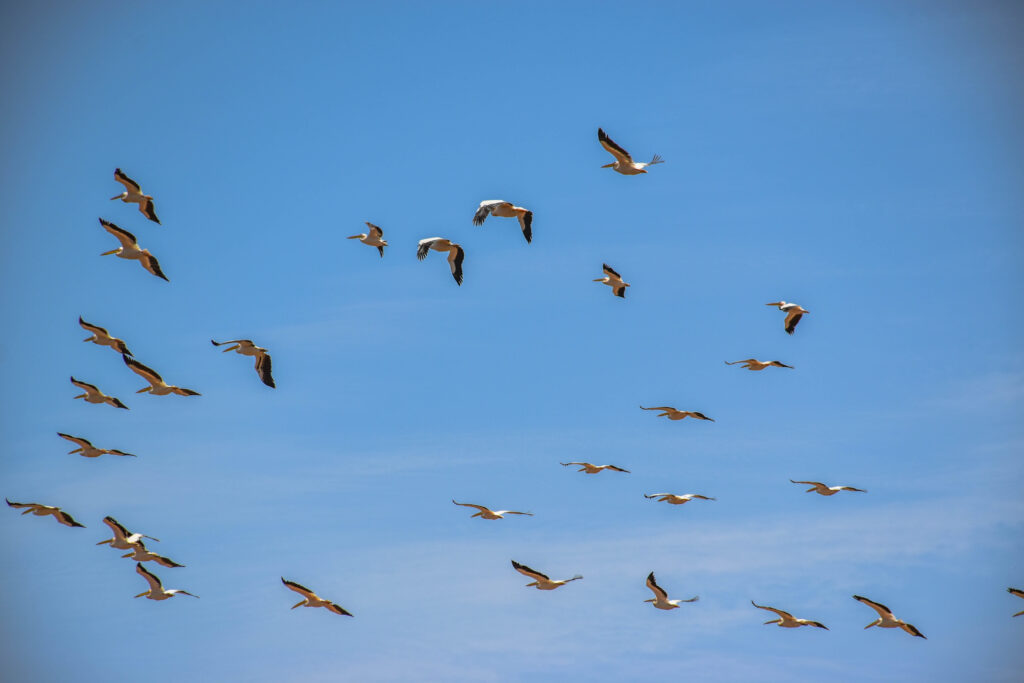
Partnerships have been central to this progress. By working closely with Abijatta–Shalla National Park authorities and surrounding communities, restoration zones inside the park now thrive in stark contrast to degraded areas outside. With continued support, the park could become a hub for biodiversity and eco-tourism, home to more than 500 bird species.
Beyond the park, Wetlands International is also supporting integrated community initiatives such as food forests, rainwater harvesting and livestock fattening projects. These efforts reduce pressure on fragile ecosystems while strengthening livelihoods.
And in Dembel Shalla, a multi-stakeholder platform co-convened with GIZ is bringing together farmers, industries and government. By building trust, they are shaping a shared vision for water use, land management and equitable development across the sub-basin
A Call for Action in Addis Ababa
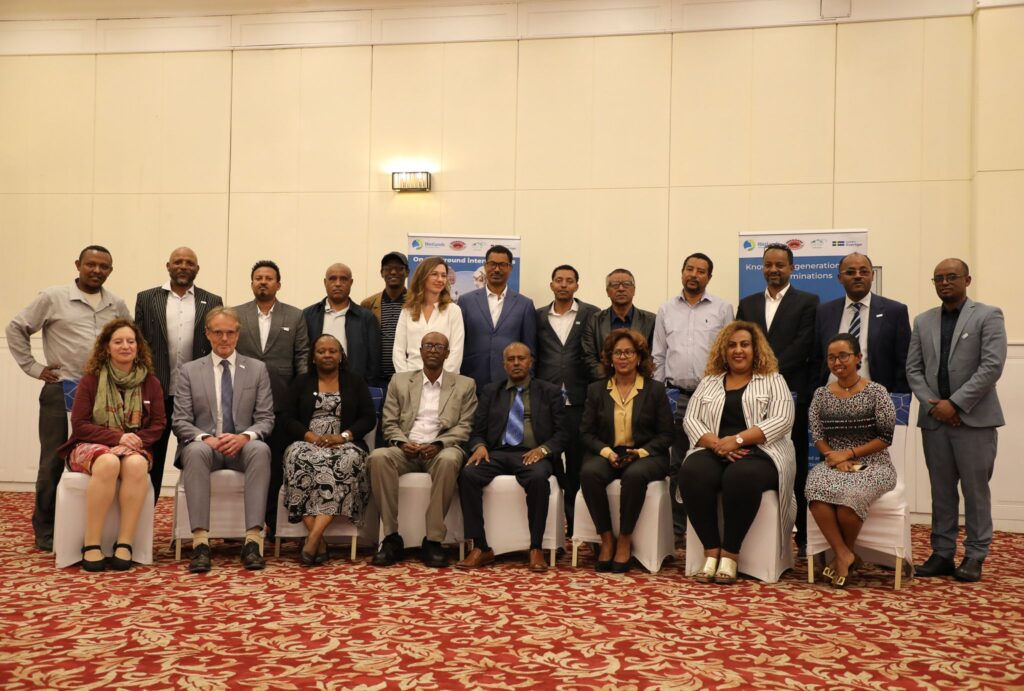
The mission ended not on the lakeshores but in the capital, Addis Ababa, where these lessons from the field met the voices of national leaders. At the High-Level Engagement Meeting titled “Partnering for Resilient Wetlands and Thriving Communities in Ethiopia,” government officials, donors, academia and civil society gathered to chart a way forward.”
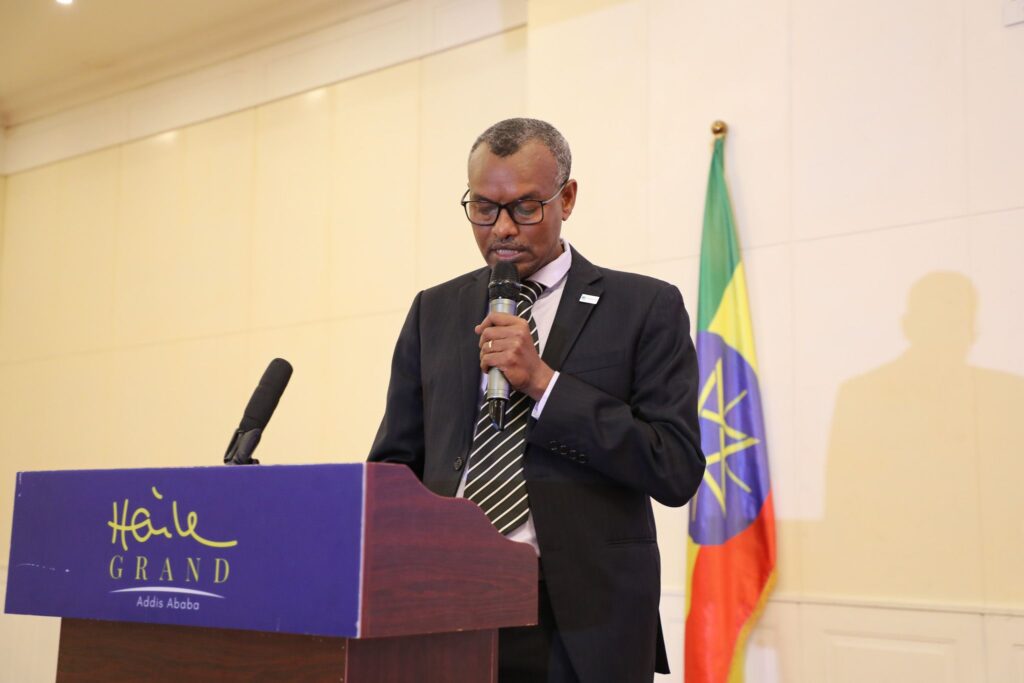
Here, leaders from government, civil society, donors, academia and the private sector came together to elevate wetlands on Ethiopia’s national agenda. Wetlands were described as the “kidneys of the Earth”, vital to filtering water, sustaining biodiversity and supporting livelihoods.
Dr. Krijger called on participants to link global responsibility with local action, stressing that wetlands cannot be seen as side issues but as central to water, food and climate security.
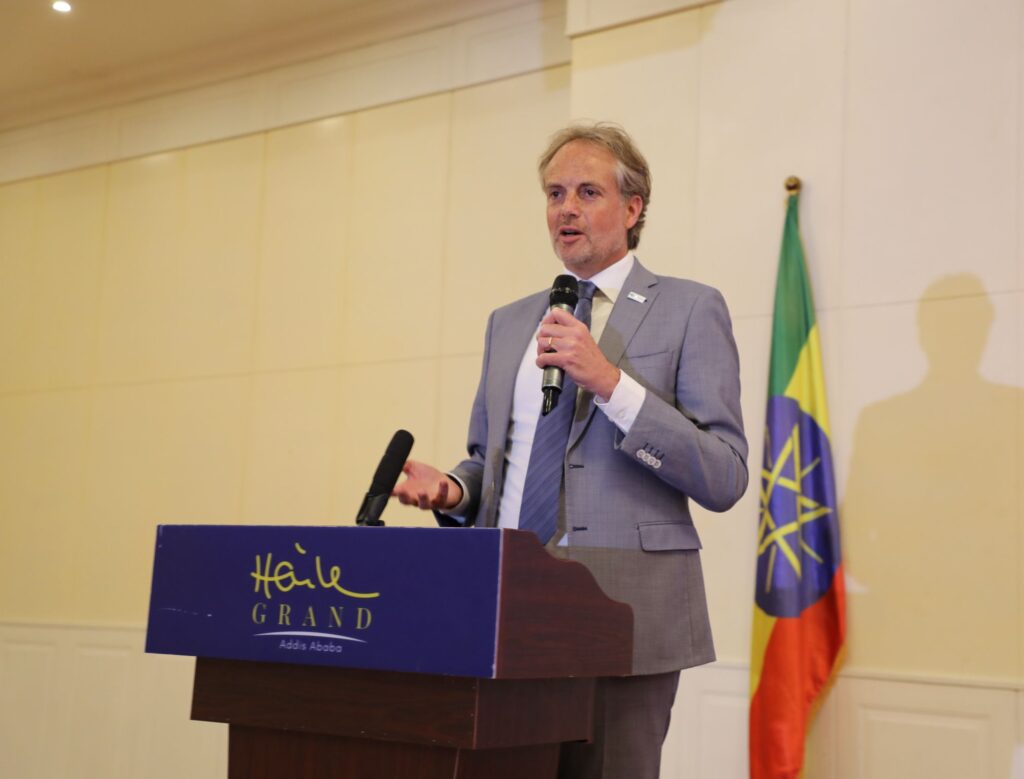
The meeting closed with renewed commitments: stronger alliances, more financing and a collective push to protect and restore wetlands as a foundation for resilience.
Lakes as the Lifeblood of Communities
Standing on the shores of Lake Ziway, the contrast is clear. On one side, drying soils and strained ecosystems. On the other, land and water slowly healing where protection and restoration take root.
It is here that the connection between field-level restoration in Ziway–Shalla and high-level dialogue in Addis becomes real. Policies and commitments gain meaning when translated into livelihoods, regenerated soils and restored dignity for communities.
Looking Ahead
World Lake Day is a reminder that lakes are more than water bodies. They are sources of food, jobs, culture and resilience. They regulate water cycles, nurture biodiversity and hold the stories of millions who depend on them.
The message from Ethiopia’s Rift Valley is clear:
- Restoration works.
- Collaboration matters.
- When we give back to lakes, they give back abundantly.
As the world celebrates the first-ever World Lake Day, the story of Ziway–Shalla stands as both a warning and a beacon of hope. From lakeshores to the halls of power, it shows that when leadership and communities come together, lakes can indeed be the lifeblood of our planet.
Read more in The Ethiopian Herald, Tuesday 1 July 2025 issue on the Ethiopian Press Agency website.
